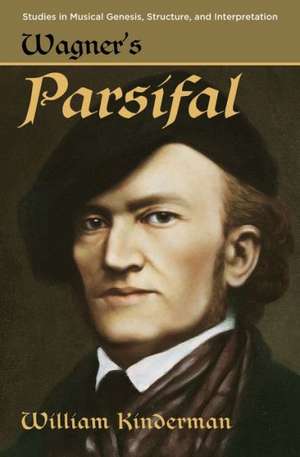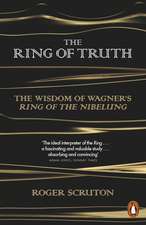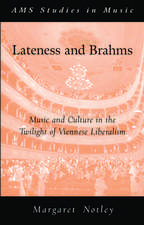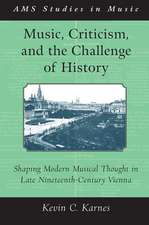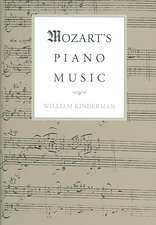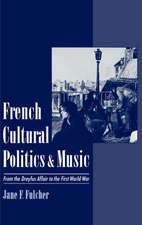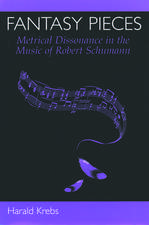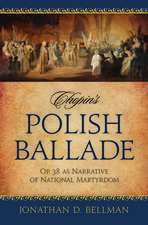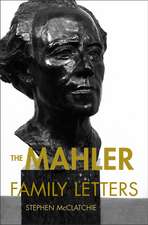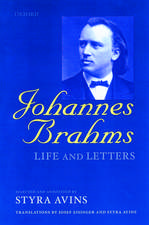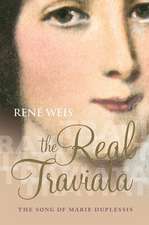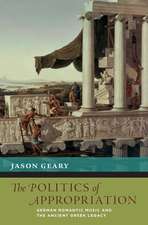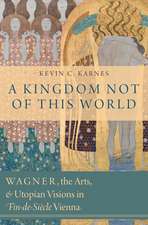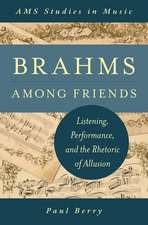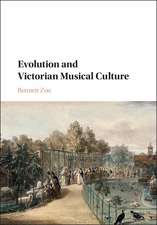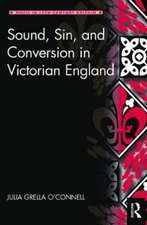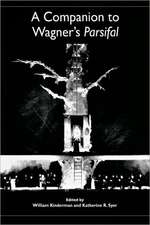Wagner's Parsifal: Studies in Musical Genesis, Structure, and Interpretation
Autor William Kindermanen Limba Engleză Hardback – 15 aug 2013
| Toate formatele și edițiile | Preț | Express |
|---|---|---|
| Paperback (1) | 304.97 lei 31-37 zile | |
| Oxford University Press – 26 apr 2018 | 304.97 lei 31-37 zile | |
| Hardback (1) | 658.07 lei 31-37 zile | |
| Oxford University Press – 15 aug 2013 | 658.07 lei 31-37 zile |
Preț: 658.07 lei
Preț vechi: 880.51 lei
-25% Nou
Puncte Express: 987
Preț estimativ în valută:
125.94€ • 130.100$ • 103.97£
125.94€ • 130.100$ • 103.97£
Carte tipărită la comandă
Livrare economică 03-09 aprilie
Preluare comenzi: 021 569.72.76
Specificații
ISBN-13: 9780195366921
ISBN-10: 0195366921
Pagini: 336
Ilustrații: 17 halftone illustrations, 93 music examples
Dimensiuni: 236 x 163 x 31 mm
Greutate: 0.59 kg
Editura: Oxford University Press
Colecția OUP USA
Seria Studies in Musical Genesis, Structure, and Interpretation
Locul publicării:New York, United States
ISBN-10: 0195366921
Pagini: 336
Ilustrații: 17 halftone illustrations, 93 music examples
Dimensiuni: 236 x 163 x 31 mm
Greutate: 0.59 kg
Editura: Oxford University Press
Colecția OUP USA
Seria Studies in Musical Genesis, Structure, and Interpretation
Locul publicării:New York, United States
Recenzii
I am eager with anticipation of this new book and will carry it with me for years to come!
The best of the bicentennial books that I have examined...Elegantly written, drawing from cutting-edge scholarship and historical sources, Kinderman's study probes the genesis, literary roots, music and afterlives of Parsifal along with its many contradictions, chief among them that a work centering on compassion and reconciliation was one from which Hitler drew inspiration.
a rich genetic study of Wagner's Parsifal ... [that] illuminates the dramatic content of the work in new and provocative ways ... this book is obligatory reading for Wagner listeners, as well as for readers interested in the creative process in general
William Kinderman points out, in his new book on Wagner's Parsifal, that the opera is arguably the 19th-century musical/dramatic work with the richest trove of documentary sources-sources that can enable us follow its creation with unprecedented precision...Kinderman is the first scholar to master all this material, even including numerous snippets of manuscript that Wagner cut out of his main working sheets as he thought of new musical ideas. Kinderman tells a fascinating, if intricate story--a story told here fully for the first time, and one in which a deft combination of source study, analytical skill, and a deep understanding of Wagner and his work all illuminate the opera in fresh and engaging ways. This is a welcome, and musically sensitive contribution to Wagner scholarship.
Professor William Kinderman has given us a most comprehensive analysis of this complicated work ... Kinderman makes a reevaluation of the genesis of this important work and demolishes many traditional views about Parsifal.
This is a fascinating and well-written study of Wagners final masterpiece.
The best of the bicentennial books that I have examined...Elegantly written, drawing from cutting-edge scholarship and historical sources, Kinderman's study probes the genesis, literary roots, music and afterlives of Parsifal along with its many contradictions, chief among them that a work centering on compassion and reconciliation was one from which Hitler drew inspiration.
a rich genetic study of Wagner's Parsifal ... [that] illuminates the dramatic content of the work in new and provocative ways ... this book is obligatory reading for Wagner listeners, as well as for readers interested in the creative process in general
William Kinderman points out, in his new book on Wagner's Parsifal, that the opera is arguably the 19th-century musical/dramatic work with the richest trove of documentary sources-sources that can enable us follow its creation with unprecedented precision...Kinderman is the first scholar to master all this material, even including numerous snippets of manuscript that Wagner cut out of his main working sheets as he thought of new musical ideas. Kinderman tells a fascinating, if intricate story--a story told here fully for the first time, and one in which a deft combination of source study, analytical skill, and a deep understanding of Wagner and his work all illuminate the opera in fresh and engaging ways. This is a welcome, and musically sensitive contribution to Wagner scholarship.
Professor William Kinderman has given us a most comprehensive analysis of this complicated work ... Kinderman makes a reevaluation of the genesis of this important work and demolishes many traditional views about Parsifal.
This is a fascinating and well-written study of Wagners final masterpiece.
Notă biografică
William Kinderman is professor of music at the University of Illinois, has taught extensively in Berlin and Munich, Germany, and held many seminars at the Wagner Festival at Bayreuth. He has written or edited many books, including Beethoven and Mozart's Piano Music. He is an accomplished concert pianist, and has recorded Beethoven's Diabelli Variations and last sonatas.
